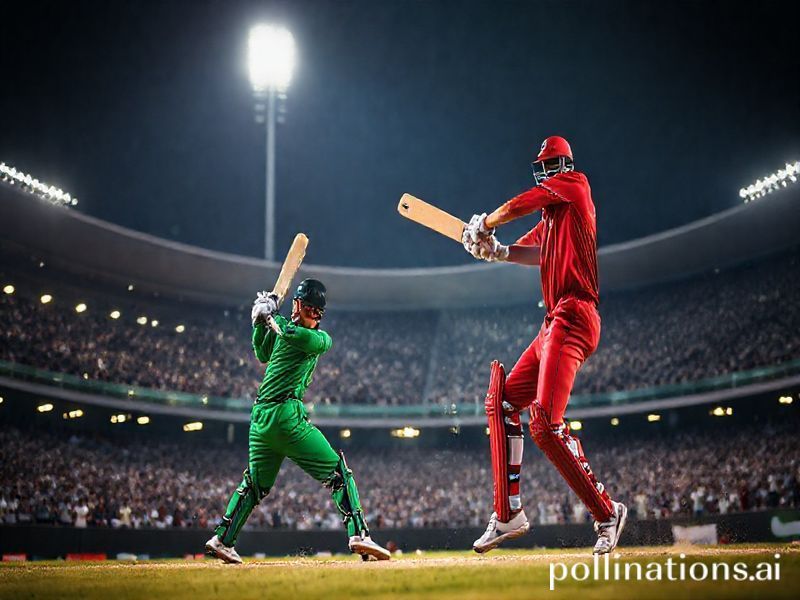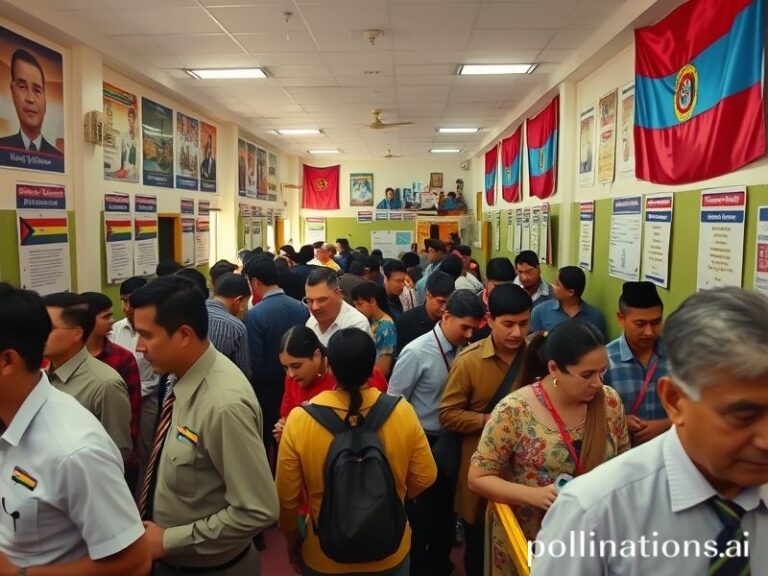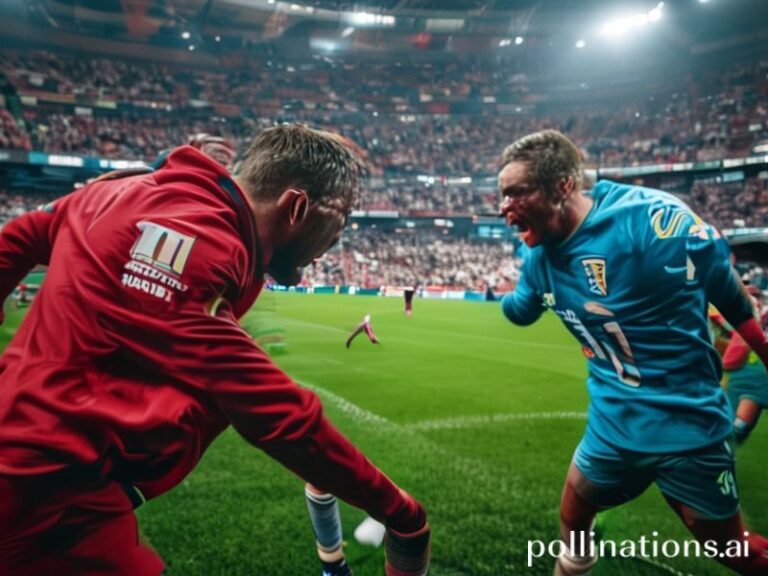pakistan vs uae
Dubai’s floodlit coliseum is once again hosting the world’s most polite blood-sport: Pakistan versus UAE, a fixture that sounds like the geopolitical equivalent of a LinkedIn request—cordial on the surface, quietly lethal beneath. On paper it’s only a cricket match; in practice it’s a diplomatic spreadsheet wearing athletic gear. One side represents a nuclear-armed republic that treats fiscal stability the way teenagers treat curfews; the other is a federation built on air-conditioning, audacity, and the certainty that oil money can buy anything except, apparently, a decent middle-order batsman.
For the global audience, the contest is less about runs per over and more about optics per petrodollar. Pakistan arrives desperate to prove that talent forged in Lahore back-alleys can still outshine infrastructure bought turnkey from Scandinavian consultants. The UAE counters with a squad so multinational it needs a customs declaration—South African accents, Caribbean birth certificates, and an Irish passport stapled to the team bus just in case someone needs an EU visa. It’s the sort of roster diversity that would make a UN peacekeeping force blush.
Bookies in London have already shortened the odds on “rain interrupted by sandstorm,” while broadcasters in Mumbai sell ad spots at rates that could refinance the Suez Canal. Meanwhile, the International Monetary Fund watches from the wings like a fretful chaperone, silently calculating how every wide ball affects Pakistan’s foreign-exchange reserves. One senses Christine Lagarde is updating spreadsheets in real time: “If Shaheen Afridi takes a hat-trick, extend credit line by 0.2%; if UAE win, demand austerity package by Monday.”
The match also doubles as a trade expo. Between overs, drones advertise Pakistani mangoes to Gulf shoppers already overdosing on Medjool dates. Luxury boxes hawk Emirati real estate to Karachi businessmen who’ve given up on reliable electricity at home. Everyone pretends the scoreboard is the main attraction; everyone knows the real duel is between remittances and re-exports.
Security consultants—those well-tailored parasites of modern anxiety—circulate through the stadium handing out glossy brochures titled “After the Final: How to Keep Your Supply Chain from Crying.” Their advice, distilled: if Pakistan collapses first, reroute textiles through Oman; if UAE falters, blame Iran and buy more Patriot missiles. It’s a PowerPoint presentation masquerading as foreign policy, and the PowerPoint has bullet points in Comic Sans.
Climate change hovers in the background like an unpaid intern nobody wants to acknowledge. The air is 42°C with humidity that feels personally resentful. Players hydrate between deliveries using neon sports drinks whose ingredient list reads like a chemistry final. Spectators, meanwhile, sip karak chai under misting fans powered by natural gas flares visible from orbit. Somewhere in Glasgow, a climate activist updates her protest sign: “Stop Adani? Too late, try ‘Stop Abu Dhabi’ instead.”
And yet, amid the mercenary spectacle, something stubbornly human persists. A Pakistani tailender from Faisalabad—whose father still drives a rickshaw—edges a boundary and raises his bat to a section of fans who haven’t seen their own families in two visa-denied years. An Emirati opener, born in Sharjah but raised on YouTube highlights of Viv Richards, finally scores a half-century and tears up because his grandmother in Kerala is watching on a cracked smartphone. These are the moments broadcasters cut to after the betting adverts, the emotional filler between financial quarters.
When the last wicket falls—or the last dirham is transferred, whichever comes first—the world will move on. Analysts will file reports with titles like “Cricket as Soft Power in a Multipolar Gulf,” and nobody will read past the executive summary. But somewhere in a cramped Karachi apartment, a kid will tape the scorecard to a wall already covered with faded posters of Wasim Akram. And in an Abu Dhabi office tower cooled to meat-locker temperatures, a junior analyst will update his CV: “Leveraged bilateral T20 exposure to optimize stakeholder synergies.” One suspects both are praying for rain, or at least a super over, because ordinary time has become too expensive to waste.
The stadium empties. The desert reclaims the silence. And capitalism, ever the undefeated captain, pockets the man-of-the-match award on its way to the next fixture—India versus England, same time zone, same soul.







